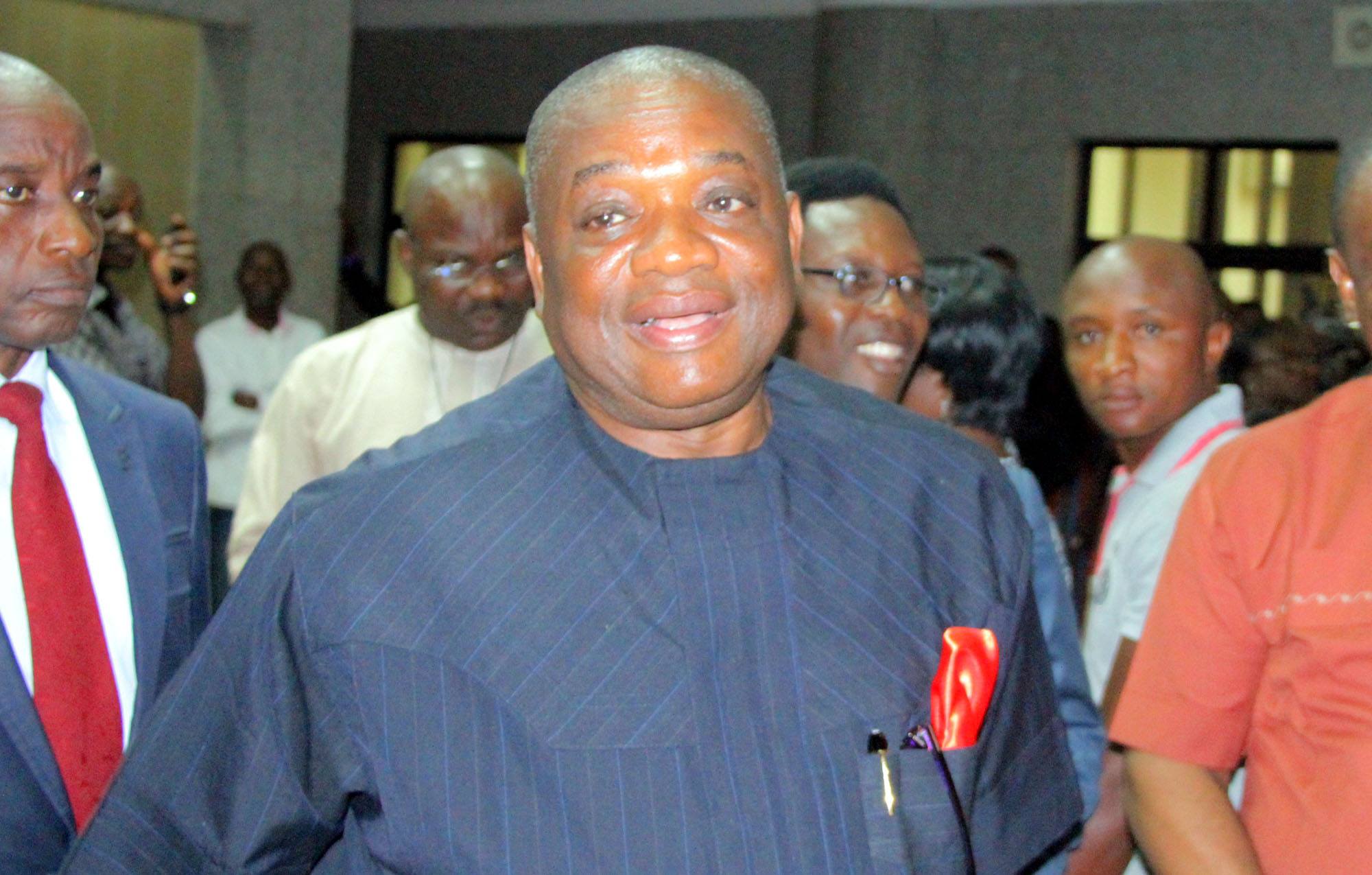The Supreme Court has set aside the December 5, 2019, judgment of the Federal High Court, Lagos in which former governor of Abia State, Orji Uzor-Kalu convicted and sentenced to 12 years imprisonment over N7.2 billion fraud.
In a unanimous on Friday, May 8, 2020, by a seven-man panel, the Supreme Court held that the Federal High Court in Lagos, which tried and convicted Kalu, his firm – Slok Nigeria Limited and his former aide, Jones Udeogu, acted without jurisdiction.
The Court was of the view that Justice Mohammed Idris, who conducted the trial, was no longer a judge of the Federal High Court as at the time he sat and delivered the judgment that convicted the defendants for allegedly stealing about N7.65billion from Abia state treasury.
The Supreme Court added that Justice Idris, having been elevated to the Court of Appeal before then, lacked the powers to return to sit as a High Court Judge.
The Court said the fiat that was issued to Justice Idris by the Court of Appeal President, pursuant to Section 396(7) of the Administration of Criminal Justice Act was unconstitutional.
The Supreme Court then proceeded to set aside the judgment that convicted the defendants and ordered a fresh trial of the defendants by another judge.
The judgment was on an appeal lodged by Udeogu, challenging the constitutionality of Section 396(7) of the Administration of Criminal Justice Act, ACJA, which was allowed by the court.
In the lead judgment, Justice Ejembi Eko held that Justice Idris, having been elevated to the Court of Appeal, was no longer a Judge of the Federal High Court and therefore acted outside his jurisdiction.
Justice Eko said Section 396(7) of the Administration of Criminal Justice Act, ACJA, 2015, which empowers the President of the Court of Appeal to issue a fiat to Justice Idris to adjudicate on the case, is a nullity on the grounds that it was in conflict with the provisions of the Constitution.
Section 396(7) of ACJA states: “Notwithstanding the provision of any other law to the contrary, a Judge of the High Court who has been elevated to the Court of Appeal shall have dispensation to continue to sit as a High Court Judge only for the purpose of concluding any part-heard criminal matter pending before him at the time of his elevation and shall conclude the same within a reasonable time; provided that this subsection shall not prevent him (the judge) from assuming duty as a Justice of the Court of Appeal.”
Justice Eko added: “The president of the Court of Appeal acted ultra vires her powers when she issued the fiat to Justice Idris to sit as a judge of the Federal High Court.
“The Federal High Court and the Court of Appeal are established by the Constitution with distinct powers and functions. The president of the Court of Appeal has no powers to assign dual powers to a Justice of the Court of Appeal to meddle in the internal affairs of the Federal High Court.
“Justice Mohammed Idris having been elevated to the Court of Appeal ceased to be a Judge of the Federal High Court and therefore lacked the jurisdiction to adjudicate on the case.”
Justice Eko held that Section 396(7) of ACJA did not give him new powers to perform dual functions. He added that Section 396(7) of ACJA was in conflict with Section 253 of the constitution which provides that: “The Federal High Court shall be duly constituted if it consists of at least one judge of that court. It is, therefore, a nullity.”
Justice Eko said:” The implication is that Justice Idris acted without jurisdiction. It is settled law that jurisdiction is the life wire of adjudication and if a court has no jurisdiction to decide a case, the proceedings remain a nullity ab initio, no matter how well conducted and decided. This is so since defect incompetence is not only intrinsic but also extrinsic to the entire process of adjudication.
“Accordingly, the judgment delivered on December 5, 2019, I hereby set aside. The case file is to be remitted to the Chief Judge of the Federal High Court to be assigned to another judge for trial de novo.
“This is because you cannot put something on nothing and expect it to stand as the whole trial was a nullity ab initio”, Justice Eko said.
In her supporting judgment, Justice Amina Augie was of the view that Section 396(7) of ACJA “has no place in our statute books.
“A Justice of the Court of Appeal cannot go back to the High Court and put up a new cap to the president on cases. The section is inconsistent with the Constitution and is therefore null and void.”
Other members of the panel are Justices Mary Odili; Bode Rodhes-Vivour, Kudirat Kekere-Ekun, Inyang Okoro and Olukayode Ariwoola.







